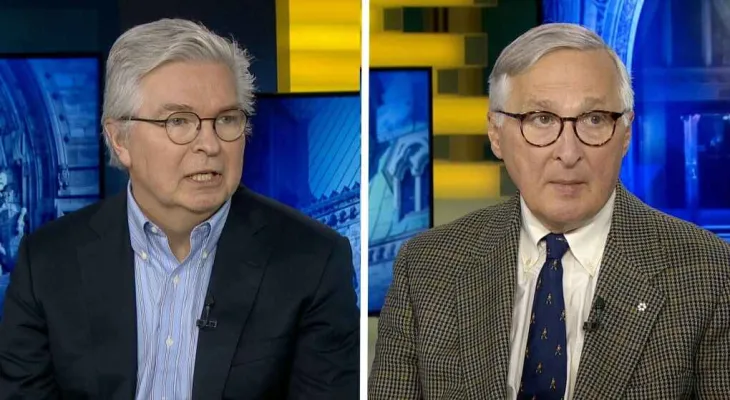Search here
Newspaper
Search here

Arab Canada News
News

Published: December 3, 2023
The indictment against an Indian citizen accused of attempting to assassinate a Sikh separatist holding both American and Canadian citizenship "confirms" Prime Minister Justin Trudeau’s claims that the Indian government may be involved in the killing of a Canadian citizen, as being of "real substance." According to two former Canadian national security advisors.
The U.S. Department of Justice announced on Wednesday that it charged Indian citizen Nikhil Gupta in June in connection with a failed assassination attempt of a Sikh separatist leader on U.S. soil.
Gupta is also alleged to have been in contact with and working under the supervision of an Indian government official in the aforementioned "contract killing" crime, according to the U.S. Department of Justice.
The newly revealed indictment discloses further significant details about the case, including its connection to the killing of another Sikh separatist leader and Canadian citizen, Hardip Singh Nijjar, in British Columbia in June.
In September, Trudeau addressed the House of Commons saying there are "credible allegations" that the Indian government may be involved in Nijjar’s death.
India denied these accusations, leading to strained relations between the two countries for more than two months.
In a joint interview on the CTV program "Question Period" aired Sunday, Richard Fadden and Vincent Rigby told host Vassy Kapelos that the new information regarding the U.S. charges lends a certain level of credibility to Trudeau’s accusations.
Meanwhile, Indian High Commissioner to Canada, Sanjay Kumar Verma, also told Kapelos in an exclusive radio interview on CTV’s Question Period broadcast on November 26, that India is cooperating with the Americans, but not the Canadians, due to discrepancies between the information shared among countries involved in their respective investigations.
When pressed at the time about whether current Canadian National Security Advisor Judy Thomas had shared any information with India during the nine days she visited that country in August and September, Verma said: "There have been talks," but no such "specific and relevant" discussions provided inputs.
He said: "Talks can contain allegations, talks can contain some facts of the case, but allegations and facts do not make it specific and relevant," "so we need to get those facts."
Rigby said the new information about the American case, specifically the unveiling of the indictment, "fundamentally changes" the Indian government’s argument that it is not cooperating with the Canadian investigation into Nijjar’s death because Canada has not shared enough "specific and relevant" information.
Rigby said: "So I largely think what the Prime Minister said is being validated that at a minimum, there are credible allegations of Indian complicity in Mr. Nijjar’s killing in Canada," adding that he found Verma’s response "interesting."
"Ultimately, I’m not entirely sure Canada did not put intelligence information before the Indians, but I think it’s probably a case that Canada is not the United States," "We’re not a superpower. Therefore, we are treated somewhat differently."
Rigby also said the Prime Minister’s accusations were the "icing on the cake" after several years of strained relations between Canada and India.
Fadden — also a former CSIS director — agreed, saying: "We were told all along" that Canada and the U.S. exchange evidence and intelligence with each other, so he "works on the assumption that much of what was in the indictment was provided to Canada."
Fadden added that he affirms "there is a real core" to Trudeau’s accusations in the House of Commons.
He added: "So I think the Indians now have to realize, especially if they cooperate with the U.S., and we continue our cooperation with the U.S., that intelligence and evidence will flow between our three countries."
He continued, "But I think we need to be realistic, I think what we have to do now is keep the pressure on with our allies to make India realize this is not the way a democracy based on the rule of law treats its allies."
Fadden also touched on the broader implications of this case on Canada’s one-year-old Indo-Pacific strategy.
Rigby agreed, saying the case will become a "real test" of Foreign Minister Mélanie Joly’s "pragmatic diplomacy" when it comes to the Indo-Pacific strategy, because India is "in many ways, the linchpin" of that strategy and the region overall.
Comments